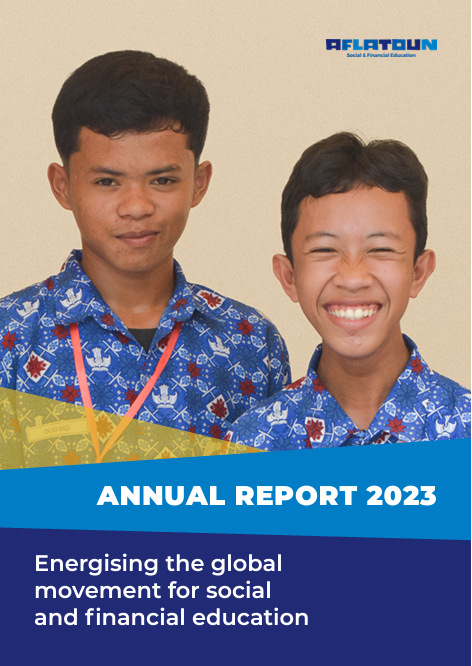Aflatoun’s core programme builds on a child’s natural curiosity and teaches them positive associations with themes as children’s rights, saving and enterprise. A key activity is the democratic formation of children’s clubs, which require children to work together, manage their savings and start small business and community improvement activities.
Underlying the curriculum is the belief that children learn best by doing, and when they engage with the world and those around them. By putting children at the centre of the learning process and engaging them with the world, Aflatoun empowers children to act as agents of positive change within their communities.
The Aflatoun programme is developed for use within formal primary education and offers teachers lesson plans around social and financial educational themes, incorporating songs, worksheets, games and activities, as well as active-learning methods. Unfortunately, many children do not have access to formal education, due to lack of opportunity or resources. Education outside the classroom, or Non-Formal Education (NFE), has become the only way for them to learn basic skills to survive and thrive.
The NFE Manual targets children in need of special protection, such as out-of-school youth, street children, abused children, and children in drop-in centres. They may face literacy and numeracy challenges as well as reduced self-confidence and capacity to learn, as a result of their experiences. To meet their requirements, the Aflatoun curriculum was redesigned for Non-Formal Education. Thanks to its flexibility, it has been very popular and used with street youth and juveniles in jail, young people in orphanages and in clubs around the world.












